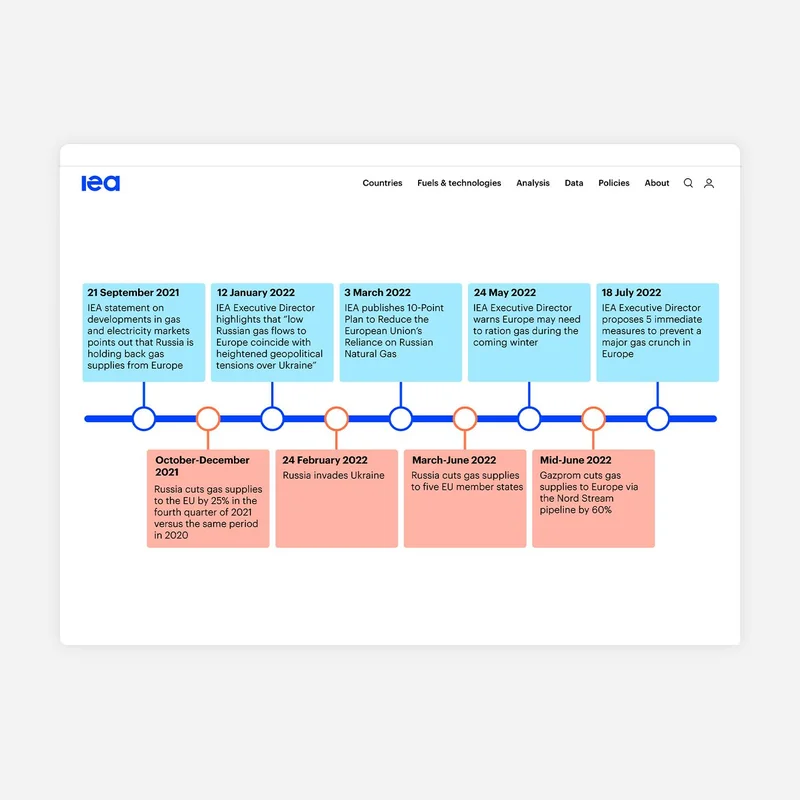Professional Vision. Smarter Crypto Decisions.
Professional Vision. Smarter Crypto Decisions.
The Unstoppable Current: Why the Future of Energy Isn't Just Green, It's Already Here.
Alright, folks, buckle up, because the latest report from the International Energy Agency – the IEA, for those unfamiliar with what is essentially the world's energy watchdog – just dropped, and it’s not just big news; it’s a seismic shift. When I first read those numbers, I honestly had to sit back for a moment, the sheer velocity of change laid bare on the page. We’re not just talking about an energy transition anymore; we're witnessing it accelerate at a speed that makes the shift from horse-drawn carriages to automobiles look like a leisurely stroll. This isn't a forecast of what might happen; it's a bold declaration of what is already happening, an unstoppable current reshaping our world.
Let’s dive into the core of it, because the IEA points are simply staggering. The world is on track to build more renewable energy projects in the next five years than we’ve managed to roll out in the last forty. Think about that for a second. Forty years of effort, compressed into a mere half-decade. This isn't incremental progress; it's a full-blown revolution. And why? Because these new, cheaper sources are ready to meet nearly all of the world's surging appetite for electricity, an appetite set to balloon by 40% over the next decade. Imagine the hum of countless servers, the quiet whir of electric vehicles gliding down highways, the efficient thrum of smart homes – all powered by clean energy. It’s a vision that’s rapidly becoming our reality.
And it’s not just solar and wind, though they’re leading the charge. The report also heralds a "renaissance" for nuclear power, driven by the insatiable demands of major tech companies. These giants, with their sprawling data centers and the ever-growing need for low-carbon electricity to power the complex algorithms, including all the new generative AI we’re seeing explode, are turning to nuclear for that steady, reliable baseline. In fact, global investment in data centers is predicted to hit an astonishing $580 billion in 2025, actually surpassing the $540 billion being spent on global oil supply. Let that sink in. The infrastructure of the future is already gobbling up more capital than the very fuel that powered the 20th century. This is the kind of breakthrough that reminds me why I got into this field in the first place; it's a testament to human ingenuity and our relentless drive for progress.

Now, I know what some of you are thinking. "But what about the political headwinds? The green backlash?" And yes, the report acknowledges the very real pressure from certain corners, like the Trump administration pushing to retreat from green investments in favor of drilling. US Republicans even reportedly pressured the IEA to paint a rosier picture for fossil fuels. But here’s the thing: no single country, no political rhetoric, can stop this tide. The speed of this is just staggering—it means the gap between today and tomorrow is closing faster than we can even comprehend, pushing us towards an energy future that's cleaner, more secure, and frankly, just plain smarter.
What does it mean when the sheer economic force of innovation outpaces political rhetoric? Can any single administration truly halt a global current this powerful? David Tong from Oil Change International put it bluntly: "no single country can stop the energy transition." And he’s right. This isn’t just about environmental ideals anymore; it's about cold, hard economics and national security. Fossil-importing nations, still reeling from energy crises, are desperately seeking cheaper, more stable alternatives. Solar power, especially, is surging across regions like the Middle East and Asia, places with abundant sunshine that are now literally capitalizing on their natural resources. It’s like trying to hold back the ocean with a sieve; the momentum is simply too great. I saw a comment on Reddit the other day that perfectly summed it up: "It’s like trying to stop the tide with a teacup – the world needs cheaper, more reliable power, and that's not fossil fuels anymore." That’s the kind of collective wisdom that truly captures the zeitgeist.
This isn't just about what's technologically possible; it’s about what's strategically imperative. Faster transition pathways offer a cheaper, more efficient, and more secure energy system for everyone. But with great power comes great responsibility, doesn’t it? While the trajectory is clear, we must also acknowledge the ethical considerations. Wealthy nations gathering at Cop30 in Belém, Brazil, have a moral obligation to commit to ending fossil fuel investment and boosting climate finance. The transition needs to be "fast, fair, and funded," as campaigners rightly demand. We can’t leave vulnerable communities behind in this incredible leap forward.
The message is undeniable, etched in the data: the fossil fuel era is ending. It's not a question of if, but how quickly we fully embrace the inevitable. This isn't just a report; it's a blueprint for a brighter, more resilient world, already under construction.